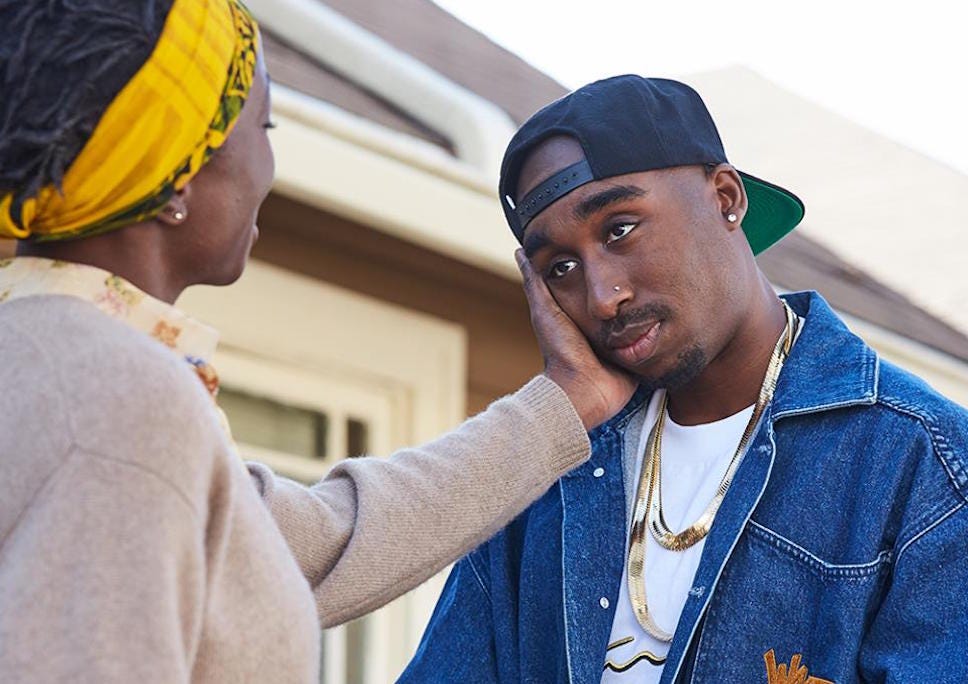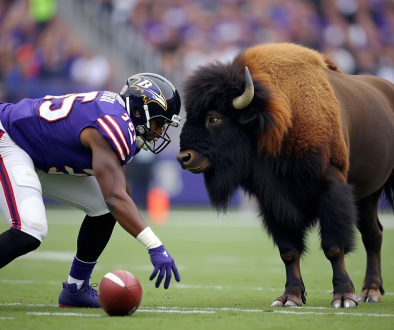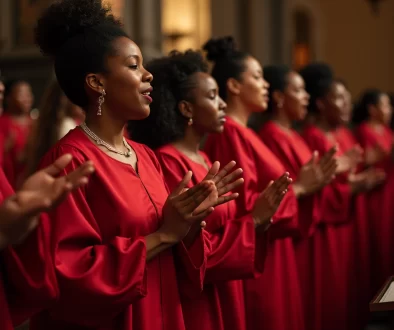Only God Can Judge Tupac, But We All Can Judge ‘All Eyez on Me’ – Extra Newsfeed

And it sucked. Spoiler alert.
“Man, I gotta be honest…that shit was weak” — Random black guy I overheard while leaving ‘All Eyez On Me’
It hurts me to say it, but yes, the heavily anticipated biopic about arguably the most important hip hop artist of all time was weak. Weak as f*ck to be exact. I won’t apologize for my high expectations of the film either (though by the end of it, I was just hoping I wouldn’t fall asleep) because it had allegedly been in the making since 2011. But more importantly, the film was about Tupac Amaru Shakur. I just knew whoever was contemplating telling Tupac’s story on the big screen wouldn’t dare produce something that didn’t manage to leave audiences moved to tears (and not from boredom).
First, let’s think about who Tupac was. In his short 25 years of life, without a high school degree, Tupac managed to shake the world with his charisma, intensity, vulnerability, and intelligence. He was a complex and intricate walking contradiction who could give you 24 different versions of himself in 24 hours and yet still manage to be genuine in each one. He was — to his core — anything and everything he ever seemed to be. He was a thug who memorized Shakespeare and a feminist accused of rape who often rapped misogynist lyrics. He preached against black-on-black violence and became obsessed and fatally consumed by it. And most importantly, he was one of the strongest and most effective black thought leaders around systemic racism and poverty since the 1960s. His politically charged lyrics are prophetically relevant over two decades after his untimely death.
So, in a sense, I get it. There is a lot of material here. And for the directors and writers, it can seem overwhelming. But instead of taking on the challenge of figuring out how to tell Tupac’s story in a coherent and compelling way, the All Eyez on Me creators punted and decided not to tell a story at all. Instead, they opted to go from disjointed shot to disjointed shot of Tupac’s most iconic moments without giving audiences any insight into who Tupac, the human being, was. They basically said, “Hey guys, look at this actor [Demetrius Shipp, Jr]. Doesn’t he look just like Tupac? Isn’t that cool? Remember this performance and this interview? Or this outfit? Look! We’re recreating this photo you’ve seen a million times. Isn’t that cool?! Give us your money!”
While the acting wasn’t terrible — especially for newcomer Demetrius Shipp Jr. who has an uncanny resemblance to Tupac — the writing didn’t exist. No matter what the actors did, there was no running away from the horrible story line (or lack thereof). There was no character development. All the information in the movie could have been gleaned from the Tupac VH1 Behind the Music episode. At least with that, there were personal accounts and interviews. All Eyez on Me was a visual Wikipedia page — same level of insight but it took 10 times longer to get the information.
And from the concert and backstage party scenes to the “where’s my money, Jerry?”-esq record label scene, it became clear the film was hoping to ride on the cultural coattails of 2015’s Straight Outta Compton. But the major difference is Straight Outta Compton had a continuous story line you could follow and characters you could connect with. If you weren’t near tears when Eazy-E was on his death bed, then we can’t be friends. Because All Eyez on Me lacked this kind of character development — particularly from the man the entire film was about — the only thing I felt when I saw Tupac fatally shot in Las Vegas was, “Thank God, now I can go home and get some sleep. Oh, we still have leftover Chinese food. I think I’ll have some sesame chicken before I go to bed.”
And apparently, I wasn’t the only one. In the last scene, but before the film officially ended, people began to leave the theater. You could feel the disappointment in the air. I had never in my life seen a majority black audience that disengaged with a film. The biggest reaction of the night came from the scene where the actor playing Snoop Dogg mouthed his lines as the actual Snoop Dogg did a voice-over. If that ain’t some Lifetime movie-quality shit, I don’t know what is. We, as an audience, didn’t know if we should laugh or cry. I think I heard a little bit of both.
After watching All Eyez on Me, all I know is this: the opportunity to be the first person to make a compelling film about Tupac is still incredibly daunting and still incredibly available.
Only God Can Judge Tupac, But We All Can Judge ‘All Eyez on Me’ was originally published in Extra Newsfeed on Medium, where people are continuing the conversation by highlighting and responding to this story.
Powered by WPeMatico


